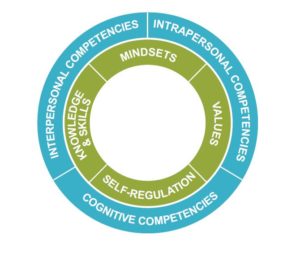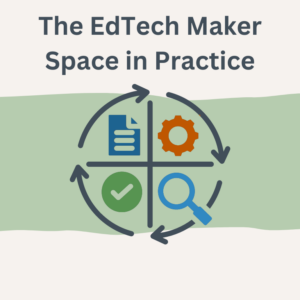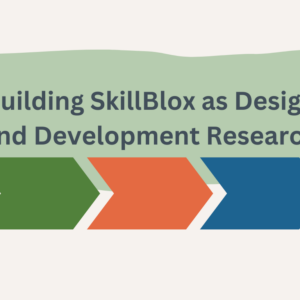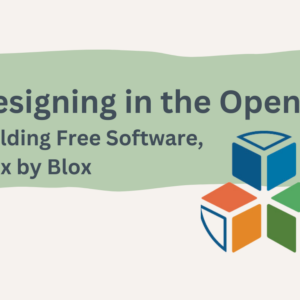By Crystal Dixson and Naila Bairamova
In a previous post, we presented findings from our landscape scan that discussed barriers to participate in learning opportunities. The framework we have chosen to organize our thinking is Margaret Becker Patterson’s nonparticipation framework, which is described in The Forgotten 90%: Adult Nonparticipation in Education (Patterson, 2018). Patterson identified situational, institutional, and dispositional factors that contribute to nonparticipation in adult basic education. Because situational and institutional barriers are external to the learner, our first post focused on them. This post will focus on the dispositional barriers working learners face, which are more internal. It made sense to separate the barrier categories in this way because situational and institutional barriers are more systemic and not easily influenced by the learner. However, the learner has more control over dispositional barriers, and attitudes towards learning and self confidence can act as either a barrier or a support to learning. Therefore, in this post we write about the dispositional barriers adult learners face, as well as how important perseverance and a positive mindset are when learning and changing one’s career trajectory.
In the report Critiquing Adult Participation in Education, Report 1: Deterrents and Solutions, Patterson and Becker use the nonparticipation framework to analyze interviews of adults about barriers or deterrents to learning and their solutions. The researchers conducted 25 group interviews with 125 adults who were not currently engaged in adult education. Of these participants, 75% had never engaged in adult education. The participants identified the following multiple dispositional deterrents:
- Influences from the past
- anxiety or fear,
- a lack of confidence in themselves,
- health concerns, and
- lack of motivation.
However, the highest ranked dispositional deterrent was influences from the past. Previous experiences with education greatly impacted their current decisions about education, as well as their perceived struggles or ability to fit into the educational system. Participants described multiple situations that led them to leave secondary school early, such as a need to work, repeating multiple grades, family requirements, or pregnancy. Other past influences cited by the participants include family upbringing, as well as attitudes displayed by family role models about their abilities and education.
Self-efficacy
A learner’s perceived ability to perform well on a task, also referred to as self-efficacy, is a strong predictor of educational and health outcomes reported in literature we reviewed. Beliefs about self-efficacy can decrease in middle age or older adulthood. In the book Improving Adult Literacy Instruction, the chapter Motivating Adult Learners to Persist discusses the internal barriers learners face and the factors which contribute to an individual’s motivation. Learners who are confident and expect to succeed are more cognitively engaged in learning than learners who doubt their abilities. The attainment of realistic goals can build a learner’s self-efficacy and influence learning outcomes. Gaining success within the workplace and meeting educational goals can help learners build self confidence and self efficacy.
In the research article Stories of learning and their significance to future pathways and aspirations, Barnes and Brown explore the narratives of three workers who began their careers with few formal qualifications and obtained low-skilled work. The career and learning paths taken by these learners enabled them to build their skills and find stable employment, which also gave them job satisfaction and opportunities for career growth. These individuals lacked formal guidance or career counselors, but they were able to draw on support from family and colleagues and overcome internal barriers. Each narrative demonstrates how positive feedback from employers as well as encouragement from family and significant others helped the learners to reframe previous challenges or negative learning experiences and continue to move forward, which in turn helped the learner to build self-efficacy.

Adaptability
Another topic discussed by Barnes and Brown is how workers are able to build their adaptability. Adaptability is defined as the ability to apply developing skills, knowledge and understanding to a new context. Workers are able to upgrade their skills by working a broad range of jobs that offer different opportunities for development. Additionally, workers are able to upgrade their skills by taking on roles which are more challenging, or provide the ability to develop new relationships and patterns of interaction. One hypothetical example given in the article is that of a driver delivering sandwiches for a small business. The driver may play an important role in building relationships with customers and influencing sales, and in turn build their own social and ‘influencing’ skills.
The authors note that while work related training is also valuable, low-skilled workers have limited access to such training, as these opportunities are more likely to be given to higher skilled workers. While some organizations do provide access to training at all levels, other barriers may prevent employees from participating, especially when such training needs to be completed on their own time. For workers in low skilled employment, engaging in a variety of roles can be a means to attaining more knowledge and understanding within the workplace, as well as building the confidence needed to pursue more skilled work and/or educational opportunities.
Growth mindset
The development of a growth mindset is also key to the success of working learners. In the SRI Education’s report, Empowering Adults to Thrive at Work: Personal Success Skills for 21st Century Jobs. A growth mindset is defined as the understanding that a learner’s ability is malleable, and while learning may be challenging and requires effective learning strategies and supports, change is possible. This report calls attention to the general awareness that the brain develops during childhood; however, few people are aware that the brain develops during the working-age years as well. Research has shown that it is possible to develop a growth mindset, and that this development will have a positive impact on success and achievement.

The SRI Education’s report focused on personal success skills which every adult needs to navigate the workplace and persist in learning. The SRI Education report used a framework which was adapted from the University of Chicago Consortium on School Research and includes interpersonal, intrapersonal, and cognitive competencies incorporated into the development of personal success skills. The foundational components within this framework are mindsets, knowledge and skills, values, and self-regulation. Mindsets are beliefs and attitudes about the external world. These attitudes and beliefs are used to process everyday experiences, such as how we perceive setbacks and failures, as well as how we cope with challenges and utilize resources to overcome them. While mindsets are not fixed, they do tend to continue until they are disrupted and replaced with new attitudes and beliefs. Adopting a productive mindset has been shown to have a positive effect on both work and academic outcomes. Studies have shown that a growth mindset, self efficacy, and a sense of belonging within schools and classrooms can be taught or promoted, and that this can have an impact on the learner’s success.
The Ability to Persist
For adult learners, the ability to persist when confronted with barriers is essential. It is important to understand the experiences of these learners and how dispositional barriers can impact their ability to engage in educational opportunities. Understanding the factors that prevent adult learners from continuing their education can help to create an environment where future learners are more likely to persist. Encouragement, or a lack thereof, from family, friends and colleagues has been seen to have an influence on the working learner’s ability to overcome barriers. Likewise, previous experience with education and learning affect a learner’s perceptions of their own abilities and the expectations they have of themselves. However, while negative past experience has been cited as a large barrier to success, utilizing work experiences and achievements can assist adult learners in reframing their experiences and gaining the confidence needed to persist.
As stated in our previous post, the barriers we have discussed above are not comprehensive. If you have any input or experience regarding dispositional barriers, please contact us at 21cleo@pdx.edu or leave a comment below.




